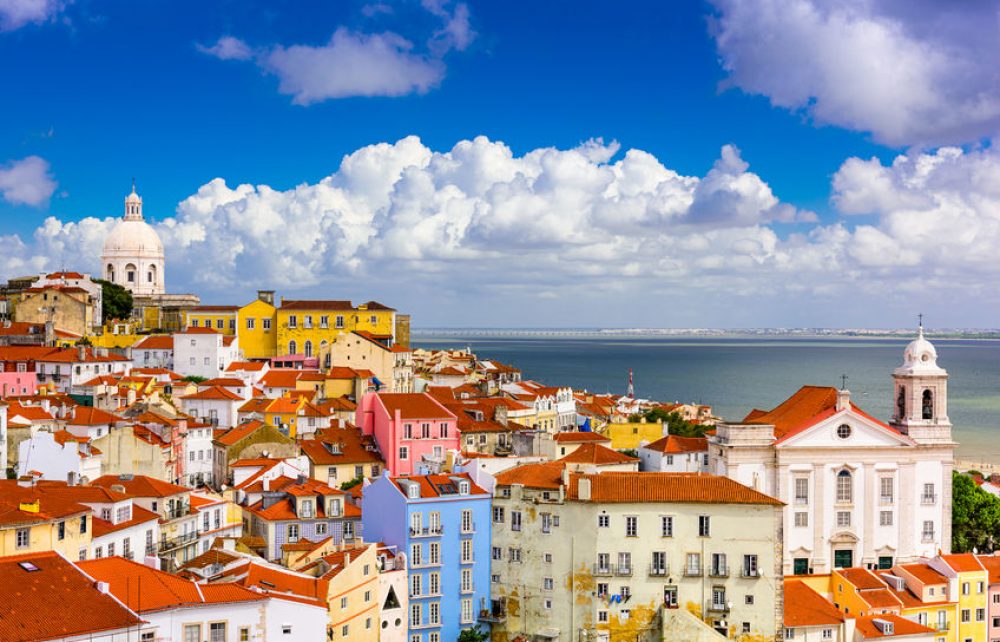In recent years Portugal has become one of the major destinations for Chinese investment, taking into account the ratio of invested capital and the size of its economy.
While top Chinese investors were mainly looking to privatise major companies, the priority for small and medium enterprises was real estate. With property prices now well above the levels recorded during the wave of Chinese investment, is now the ideal time to sell?
The so-called Residence Permit for Investment Activity (ARI), or “golden visas”, has been boosting Chinese investment in Portuguese real estate, attracting 3.4 billion euros since its inception in 2012.
Data recently released by the Immigration and Borders Service (SEF) indicate that between 2012 and 2017, 2 billion euros, or 60% of the total investment in “golden visas” came from China, resulting in the granting of 3,588 visas for residence in Portugal, valid for the “Schengen Area”, each in return of an investment of more than 500,000 euros in real estate.
The best year for attracting investment from China was 2014, when the golden visas program raised over 710 million euros in exchange for 1,235 visas.
In 2017, Chinese investment totaled more than 306 million euros (538 visas) representing a 37% decrease compared to over 487 million euros (848 visas) recorded in 2016. No data is available on the divestiture in real estate by investors with “golden visas”.
On three specific cases, CLBrief found that investors chose to sell real estate acquired during the “peak” of the Portuguese real estate crisis (2011 and 2012) between 2017 and 2018, leaving them with significant profit margins.
One of the investors, with a strong presence in Macao, has been selling a large part of its real estate portfolio in Lisbon since 2017. It has begun investing in real estate in Brussels, Belgium.
In another case, also involving Macao, the recent and successful sale of a property in the center of the Portuguese capital (Marquês de Pombal), motivated the businessman to organize a visit for family and business partners in Lisbon at the beginning of 2018.
Although the leading real estate consultants still anticipate a real estate valuation in Portugal in the short term, the general consensus is that the margin of increase is now well below the values estimated in 2015 or 2016.
Some real estate agents even talk about a real estate “bubble” in major Portuguese cities, at a time when prices per square meter in Lisbon are, for example, already comparable to Paris, although the level of income is much lower.
Foreign investment has caused an inflation of real estate prices – first the wave of Chinese investment and, more recently, from European countries such as France and Spain. Data from the European Bureau of Statistics (Eurostat) released in April indicate that Portugal is at the top, in terms of the rise in home prices within the EU.
House prices rose 4.5% in the EU in the fourth quarter of 2017 when compared to the same period last year. Leading the way is Ireland, where by end-2017 house prices had increased by 11.8% compared to 2016, followed by Portugal, with a price increase of 10.5%.
At the same time, Portuguese banks have been accelerating the granting of new credit for home purchase, and in the first two months of the year, national financial institutions lent over 1 billion euros for the acquisition of housing, reaching the pre-crisis levels attained in 2010.
The national banking sector expects that the second quarter of the year will be marked by an increase in credit demand, both by companies and individuals, according to the five banks consulted by the Bank of Portugal during a survey into the credit market.
One of the largest tenants in the country and owners of real estate, valued at more than 2 billion euros, with a 70% concentration in Lisbon and Porto, is Fidelidade, an insurance company bought by the Chinese group Fosun in 2014.
At a time of maximum property prices, the insurance company assumes that it is selling real estate, with 276 properties for sale, a significant amount for the size of Portugal’s market. Of those 276, 151 are residential, counting for 1,299 tenants.
Most of Fidelidade’s properties in Lisbon are in prime areas, where they reach higher prices and demand is greater.
Since the company was bought by Fosun, Fidelidade has invested heavily in real estate, both in Portugal and abroad, making major acquisitions in emblematic areas of Lisbon, such as Chiado, in the vicinity of the new headquarters of EDP – Energias de Portugal, a company with China’s Three Gorges as the main shareholder.
Fidelidade has made some recent investments in the Portuguese capital, especially in urban regeneration, including in the headquarters of legal offices like Abreu Advogados and Vieira de Almeida, in Lisbon’s riverside area.
After investing 80 million euros in 2017, the company seems willing to remain as a benchmark investor in Portugal’s real estate market, although it will need to reduce its exposure to this sector.
This move results from a need to comply with the EU solvency regime for insurance companies – effective since January 2016, which recommends an exposure of no more than 2% in direct investment in real estate when Fidelidade’s is at 14%.
The aim of Fidelidade is to reduce the portfolio of investment in real estate to 1.5 billion euros, or 9-10% of total assets.
Although the motives for the divestiture of real estate differ among the various Chinese investors mentioned, common to all is the prospect of significant return on the capital invested in recent years, especially for those who invested in 2011 and 2012, at the “peak” of the economic crisis in Portugal.
Moreover, Chinese investment continues to be welcomed by Portuguese authorities and economic operators, without raising the reservations observed in other European countries. A recent study by Informa DB reveals that Chinese investment in Portuguese companies controlled by foreigners has already surpassed the UK, especially in the sectors of insurance and health.
The value of Chinese investment in Portuguese companies’ shares in 2017 was close to 48.9 billion euros while the value of control positions stood at 21 billion euros, according to Informa DB.




